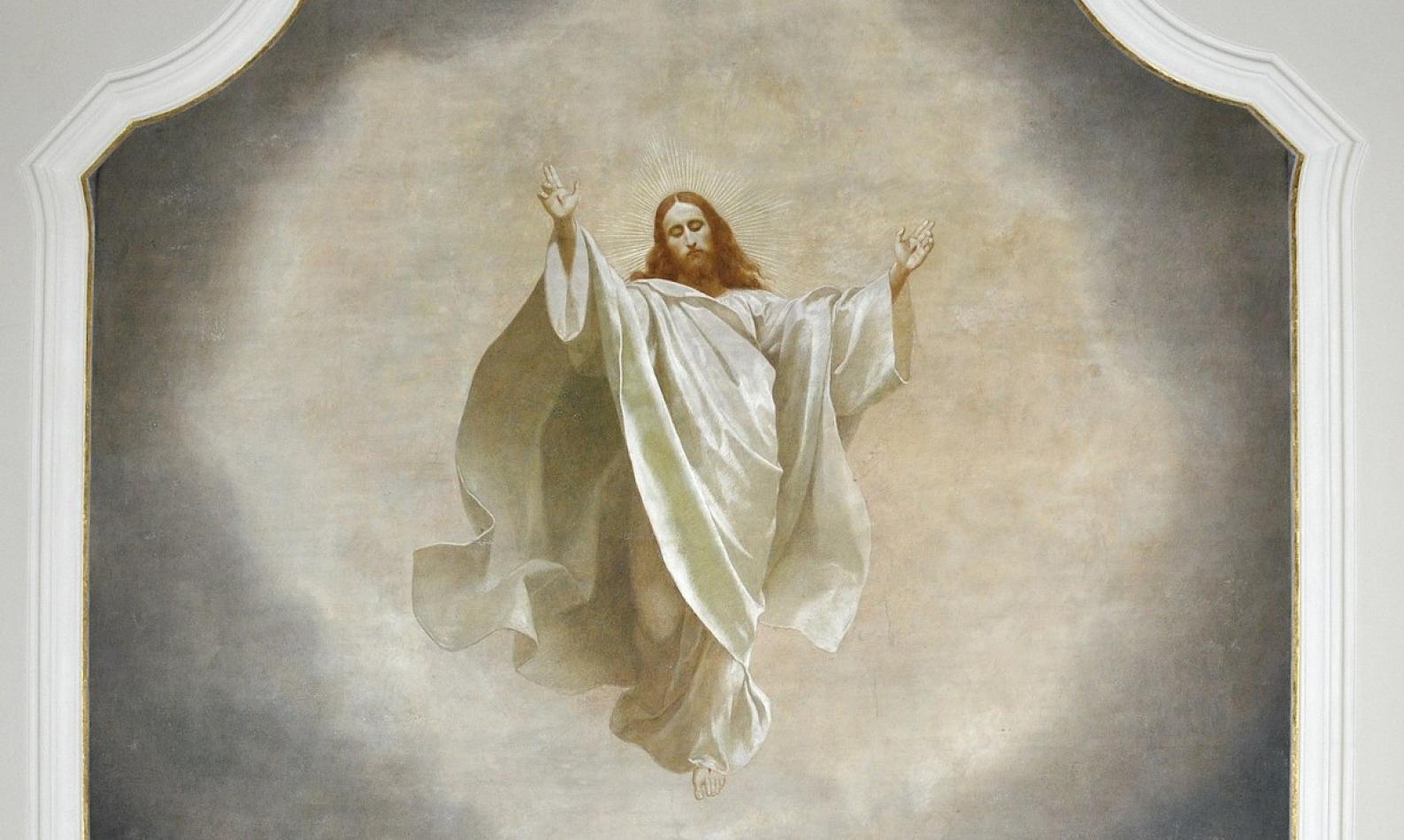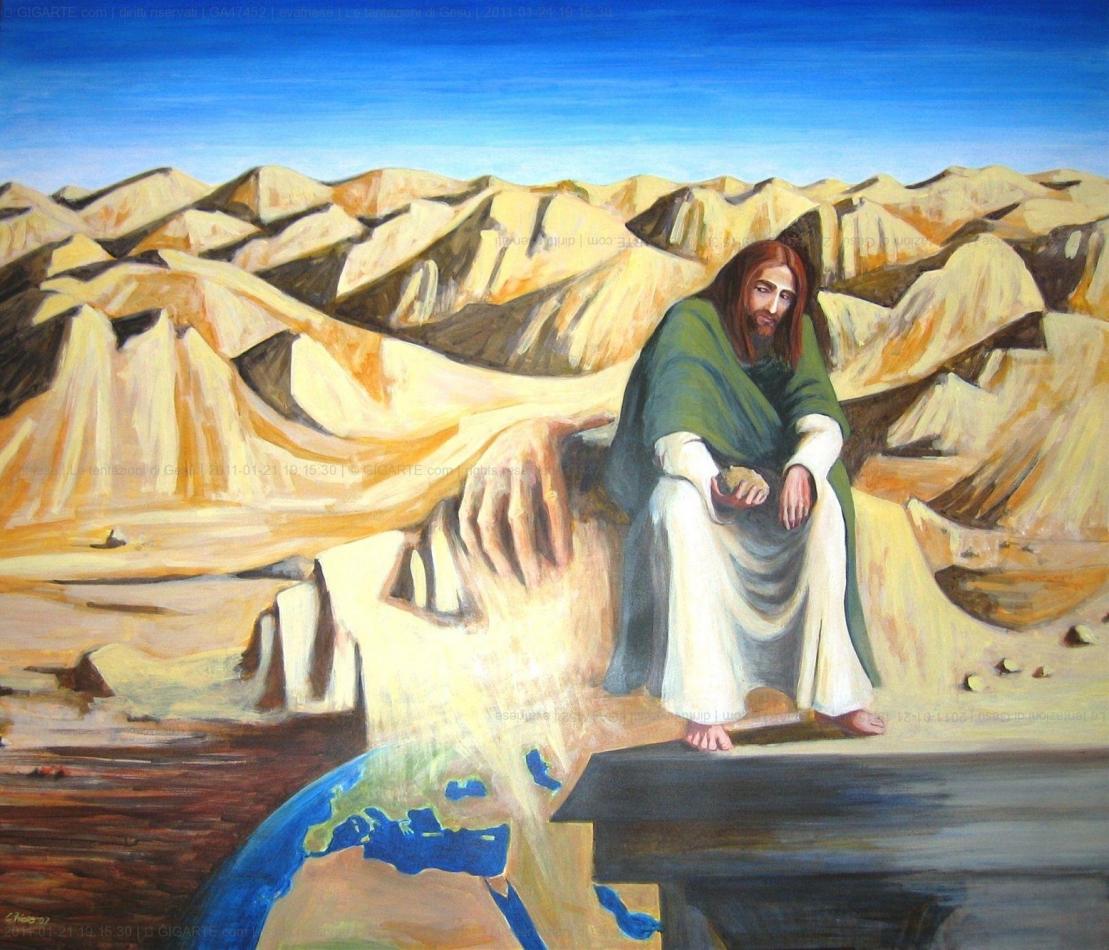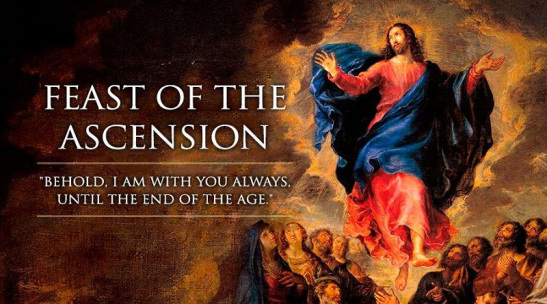Daniel Comboni
Comboni Missionaries
Institutional area
Other links
Newsletter
Matthew does not describe the Ascension of Jesus as the Acts of the Apostles do but, using different images, he suggests the same message. Unlike Luke and John, he places the encounter with the Risen not in Jerusalem but in Galilee. This geographical setting has a theological value: the evangelist wants to say that the mission of the apostles begins where their Master had begun.
GOSPEL REFLECTION
Matthew 28:16-20
Matthew does not describe the Ascension of Jesus as the Acts of the Apostles do but, using different images, he suggests the same message. Unlike Luke and John, he places the encounter with the Risen not in Jerusalem but in Galilee. This geographical setting has a theological value: the evangelist wants to say that the mission of the apostles begins where their Master had begun.
Galilee was a despised region. Due to the frequent invasions from the north and east, it was inhabited by a diverse population, derived from a mixture of races. Isaiah designates it as “the land of the Gentiles,” that is, of the pagans (Is 9:1). The Orthodox Jews looked at it with suspicion and distrust. To Nicodemus, who shyly tried to defend Jesus, the Pharisees of Jerusalem objected: “Look it up and see for yourself that no prophet is to come from Galilee” (Jn 7:52). It is exactly to these semi-pagans—Matthew wants to say—that now the Gospel is destined. Jerusalem, the city that rejected the Messiah of God, lost her privilege to be the spiritual center of Israel.
The Risen One meets the disciples on the mountain (v. 16). Commenting on the Gospel of the Second Sunday of Lent, we have clarified the meaning of the mountain. It was the site of the manifestations of God; he was manifested to Moses and Elijah at the top of the mountain. Matthew often uses this image: he places Jesus on the mount every time he teaches or performs some particularly important acts. If one keeps this fact in mind, one can understand the meaning of the scene narrated in today’s passage: the sending of the disciples in the world is a decisive event. Not only that, but one who had the experience of the Risen Lord and has assimilated his message on the mountain is empowered to fulfill this mission.
The remark that “although some apostles doubted” (v. 17) is amazing. How could they still have doubts if they had already met the Risen Lord in Jerusalem on Easter Sunday?
From the point of view of catechesis, this particular remark is indicative. For Matthew, the Christian community is not made up of perfect people, but of people in whom good and evil, light and darkness continue to be present. We encounter this situation among the first disciples: they have faith, but they still have doubts and uncertainties. It is possible to believe in Christ and have doubts. The contrary is impossible: faith cannot exist together with the evidence. One cannot “believe” that the sun exists; there is the certainty, one can see it. The effects of its light and its heat are scientifically verifiable. In the field of faith, this evidence is impossible. Like the apostles, we, too, have a deep conviction of the truth of the resurrection of Christ, but it cannot be proven.
In the second part of the passage (vv. 18-20), there is the sending of the apostles to evangelize the whole world. During his public life, Jesus had sent them to announce the kingdom of heaven with these instructions: “Do not visit pagan territory, and do not enter a Samaritan town. Go instead to the lost sheep of the people of Israel” (Mt 10:5-6). After Easter, their mission expands; it becomes universal.
The light was enkindled in Galilee when Jesus, having left Nazareth, settled in Capernaum. “The people who lived in darkness have seen a great light; on those who live in the land of the shadow of death a light has shone” (Mt 4:16). Now its light must shine in the whole world. As the prophets have announced, Israel becomes “light of the nations” (Is 42:6). The time is decisive, and Jesus refers to his authority: he was sent by the Father to bring the message of salvation; now he entrusts this task to the community of the disciples, giving them his own powers.
The Church is called to make Christ present in the world. Through Baptism, she generates new children that are inserted in the communion of the Trinity, the Father, the Son and the Spirit. It is a sublime but difficult mission; it inspires awe and trepidation in those who are called to carry it out. Every vocation is always accompanied by human fear and by God’s promise that assures: “Fear not, I am with you.” God guarantees to Jacob on his journey to an unknown land: “I am with you and I will keep you safe wherever you go. I will not leave you” (Gen 28:15). To Israel deported to Babylon, God says: “Since you are precious in my sight, and important—for I have loved you. Fear not, for I am with you” (Is 43:4-5). To Moses who objects: “Who am I that I should go to Pharaoh and bring the people of Israel out of Egypt?” He replies: “I will be with you” (Ex 3:11-12). To Paul in Corinth, who is tempted to be discouraged, the Lord says: “Do not be afraid, for I am with you, so no one will harm you” (Acts 18:9-10).
The promise of the Risen Lord to his disciples, who are about to take their first tentative steps, cannot be different: “Behold, I am with you always, until the end of the world” (v. 20). The Gospel of Matthew closes as it had begun, with the appeal to the Emmanuel, the God-with-us, the name by which the Messiah was foretold by the prophets (Mt 1:22-23).
READ: The Gospel ends on a glorious and triumphant note. The eleven joyfully join Jesus on the mountaintop. Jesus has power over all, and he sends out his disciples to continue his ministry in all nations.
REFLECT: What a wonderful ending for the Gospel! So different from the other Gospels! The Church begins with Jesus commissioning the eleven. All are welcome to join!
PRAY: Pray for the evangelization of all people. Pray that the Gospel be preached from one end of the earth to the other.
ACT: Proclaim the Gospel by how you live. Let your actions flow from your beliefs. Jesus is risen! Alleluia!
Fernando Armellini
Italian missionary and biblical scholar
https://sundaycommentaries.wordpress.com





